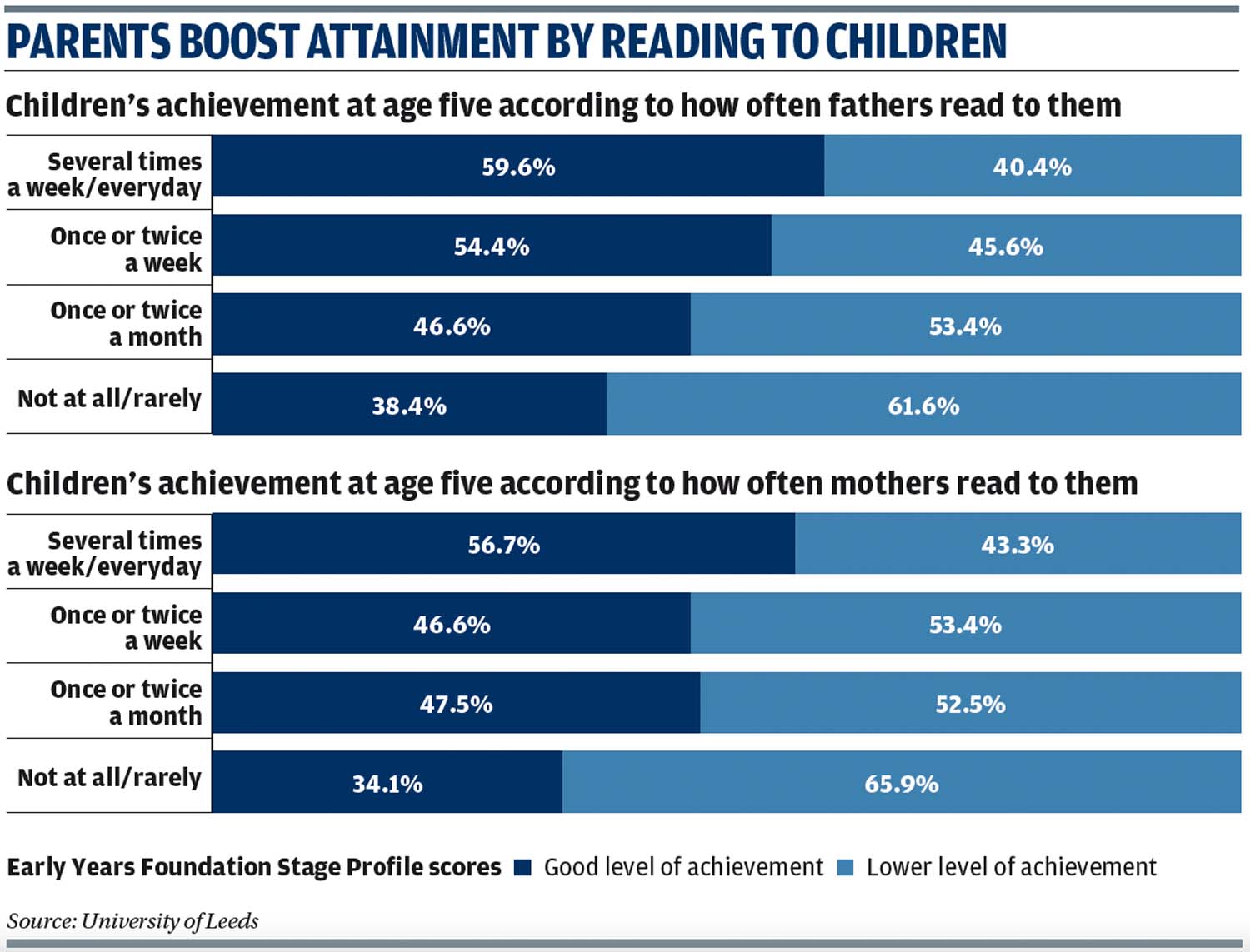
Report: Parental Involvement and its Effects on Children’s Education
Published by: University of Leeds, September 2023
Researchers analysed data on just under 5,000 mother-father households in England from the Millennium Cohort Study, which followed children born from 2000 to 2002. Parents were asked about their involvement in activities with their child such as reading, drawing and playing indoors and outdoors. The team linked this information to primary school test scores for children at age five and seven. They also surveyed 250 fathers and ran focus groups with fathers and organisations that work with parents.

The study found fathers’ involvement in childcare has a unique and important effect on the educational outcomes of children – over and above the effect of mothers’ involvement. Dads who regularly drew, played and read with their three-year-olds helped their children do better at school by age five. Dads being involved at age five also helped improve scores in seven-year-olds’ Key Stage Assessments.
Register Now to Continue Reading
Thank you for visiting Children & Young People Now and making use of our archive of more than 60,000 expert features, topics hubs, case studies and policy updates. Why not register today and enjoy the following great benefits:
What's Included
-
Free access to 4 subscriber-only articles per month
-
Email newsletter providing advice and guidance across the sector
Already have an account? Sign in here

